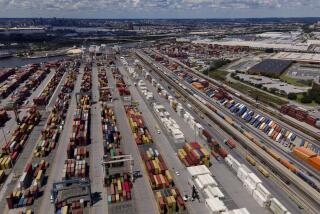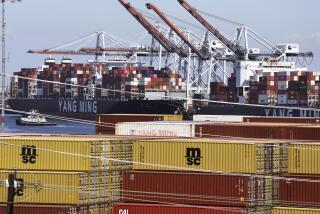Answer for Cement Scarcity
- Share via
Well before the shock and pain subside, the victims of Hurricane Charley in Florida must add another worry to their list: an exorbitant increase in the cost of key building materials, principally cement, that will be needed to reconstruct their devastated towns and cities.
Cement shortages that first appeared this spring in Florida (which imports about 40% of its cement, compared with a nationwide average of 20%) have now reached a critical point. Other parts of the country are also being hit hard as fierce demand in China soaks up world supplies. By June, prices had risen by as much as 20% in some regions. In a survey that month by the National Assn. of Home Builders, 41% of responders said they were experiencing a shortage of cement, up from 11% in May.
The shortage, along with scarcity of other building materials like wallboard, steel framing, lumber and insulation, is driving up the cost of a new house by an average of $5,000 to $7,000, according to the builders association. Yet, at least when it comes to cement, it’s a relatively simple problem to solve. Congress and the Bush administration should rescind the costly anti-dumping duties imposed on Mexican cement in 1990.
U.S. anti-dumping law was created at about the time of World War I and was originally aimed at foreign producers that, it was feared, would flood U.S. markets with low-cost goods, drive U.S. competitors out of business and then exploit their monopoly position. But such scenarios seldom became reality, and the law was all but ignored. So the definition of anti-dumping was changed to aim for products that sold at below average total cost of production or at a lower price in the export market than at home. Last month, the Bush administration imposed such tariffs on shrimp imports from China and Vietnam, a move retailers say will result in higher shrimp prices.
The problem is, there’s nothing economically wrong with charging low prices, which benefits consumers and tends to decrease the effect of inflation. In effect, anti-dumping laws penalize foreign producers for practices that are perfectly legal and normal in the domestic market.
Supporters of tariffs argue that they protect American industry and American jobs. But when one industry wins, others tend to lose; rising cement prices mean businesses and consumers face higher construction costs, so they have less money to spend on other products or on hiring more workers.
Florida’s storm victims shouldn’t end up suffering more as the government protects an industry to their and most other Americans’ detriment.










